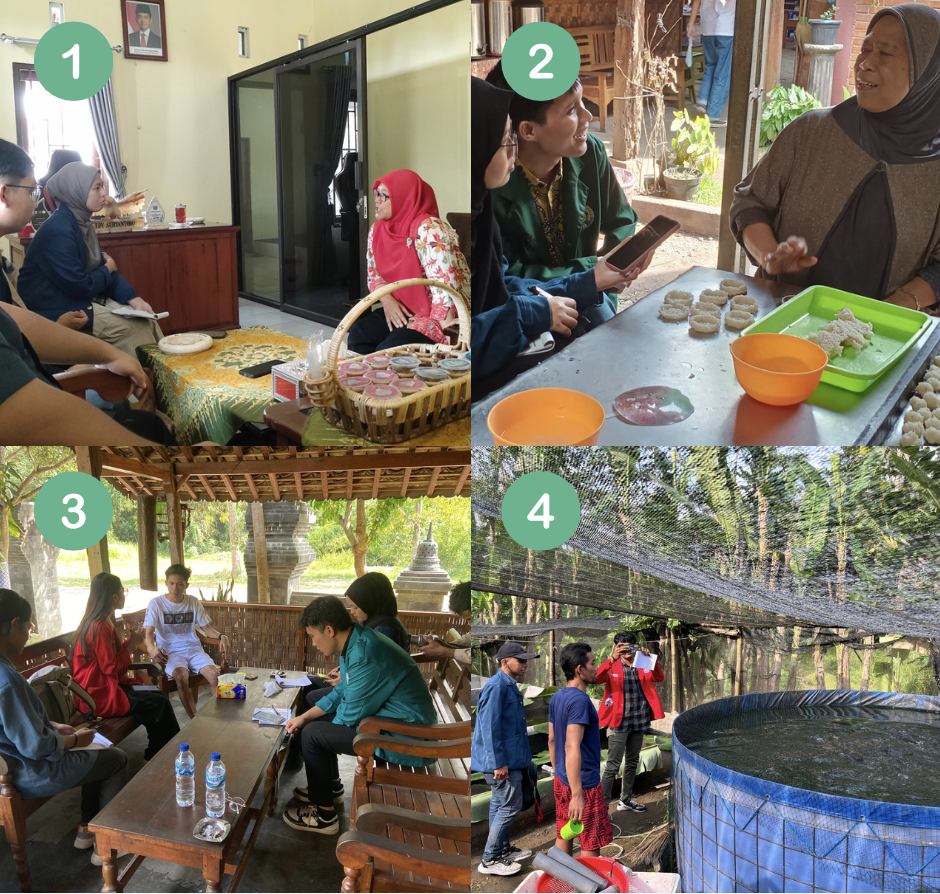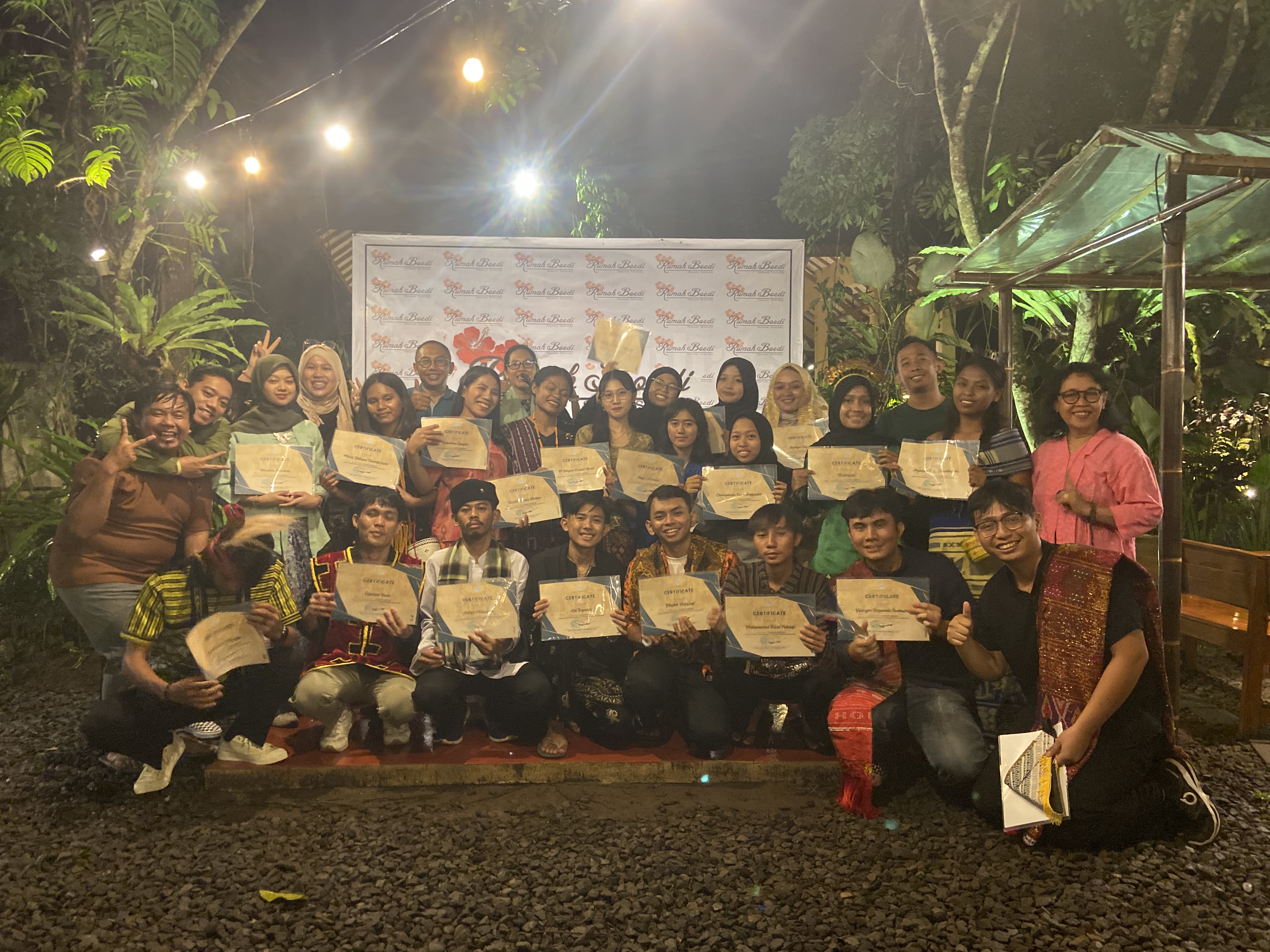Citizenship Workshop Magelang
Van Deventer-Maas Indonesia held Citizenship Workshop 2024 in Rumah Boedi, Magelang on October 29 to November 2, 2024. Attended by 20 participants who came from different cultures and universities in Indonesia. The background of this program is to provide soft skills for the VDMI 4th year grantees to get ready to jump into society. It is expected that they are able to implement their knowledge from each study background and how to be an active citizen especially for sustainable society development.
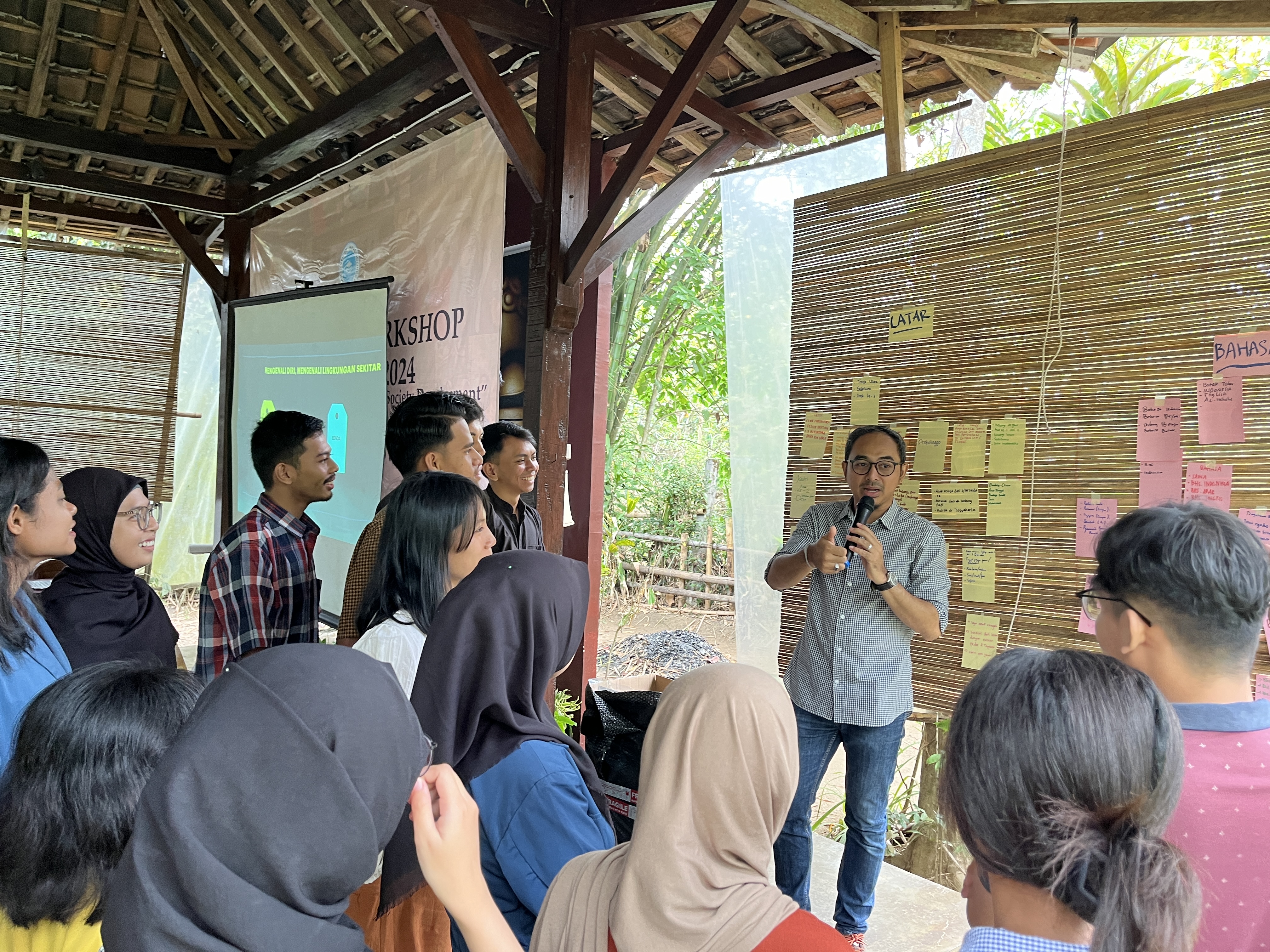
On the first day starts with field research and essay writing shared by Dr. Zaki Habibi. He shared a methodology on how to observe society, starting with knowing what influenced each participant and self or personality to become the person they are today, by distributing three types of paper to write on which were divided into three parts namely as background, language and objects. Each participant was asked to write it on each piece for the things that are very impressive and memorable in their personal life, including thought of patterns and actions and collect it to show to all the participants, from there we can learn that there are many things can be observed from each person, and understand someone more precisely. After that, Zaki opened up about current issues: Dilemma of AI usage in this digital era. The most popular generative AI tool that university students usually use is ChatGPT. AI Tools cannot be accessed in several countries because they are American based (conflict between countries). In this case, we must respond by asking and validating ourselves “when should we use AI tools?”, “what should we use AI for?” and “why do we feel the need to use these AI tools?”. We must have self-limitations, if at any time we cannot really control ourselves to use it. In fact, we have to remain aware of the innovation technology so that we can use AI effectively if we are to help create articles in terms of advanced data elaboration and make it productive. Continuing in the afternoon, participants had a chance to meet with Kepala Dusun Tingal Wetan, Mr. Asropil. He shared about what kind of local potential such as human resources, nature resources, local wisdom, and local figures that existed in Tingal Wetan. At the end, the group has been classified into 4: 1) Wanurejo Village Office, 2) Catfish Cultivation, 3) Rengginan, 4) Mushrooms Cultivations.
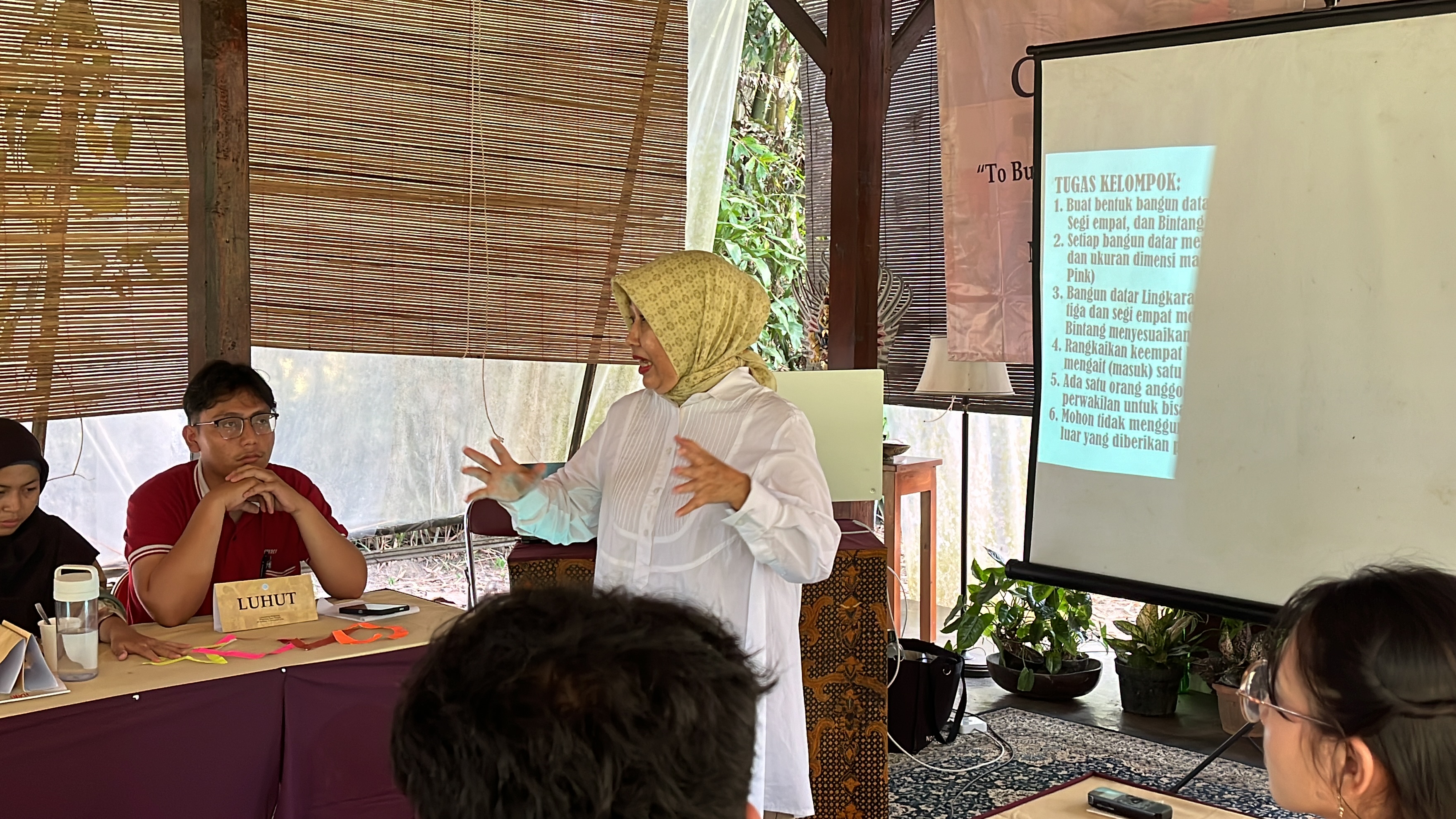
“Indonesia Emas 2045”
On the second day, Indonesia Leadership in the Future facilitated by Dr. Jenny Ratna Suminar. She shared the seriousness of facing the Indonesian people, especially those they observed in their social environment. Participants were asked to describe how they can play a role in the future. All of this country’s problems and challenges must be recognized and understood by future leaders, so that from now on they have prepared the personal competencies needed to answer these challenges. Continuing in the afternoon, participants were divided into four groups for a local visit to do a mission of finding a local people to identify what kind of problems they were facing, then help them and find a solution. Another group has a mission to collect a certain amount of rupiah, by helping local residents. Also, participants were encouraged to learn the history of the nation and struggle and the ideals of the nation and founders as a map of the journey that has been passed as a nation. They have to choose idols who are able to motivate and be role models in leading society and have a high sense of responsibility and nationalism as intellectuals.

On the 3rd day, participants had an opportunity to define people for and with others, and their individual personality with Patrick Yesandro. In the sense that we process together not only by giving them what they need, but presenting ourselves together with them. Doing a good deed is not always done with material things, but by presenting ourselves, just starting with small things and just an emotional approach can help them. When we do good, we can automatically feel the goodness and the control within us can become consistent. Each of us cannot determine our background, how we are physically, how our parents were raised, but how we can accept the situation. Stop thinking that “I am nothing”, but each of us has a special personality. After that, he provides a psychology DISC test (Dominant, Influence, Steadiness, Compliant) in which participants could identify which personality was appropriate to them. Continued in the afternoon, participants begin the local exposure by field practice to the society. Each group has separated to visit Wanurejo Village Office, Catfish cultivation, Small enterprise Rengginan, and Mushrooms Cultivations. During this session participants have an assignment to write a report with the topic of how the society is able to develop. At the end of the day, each group continues to discuss with Patrick regarding what kind of potential and data results they have.
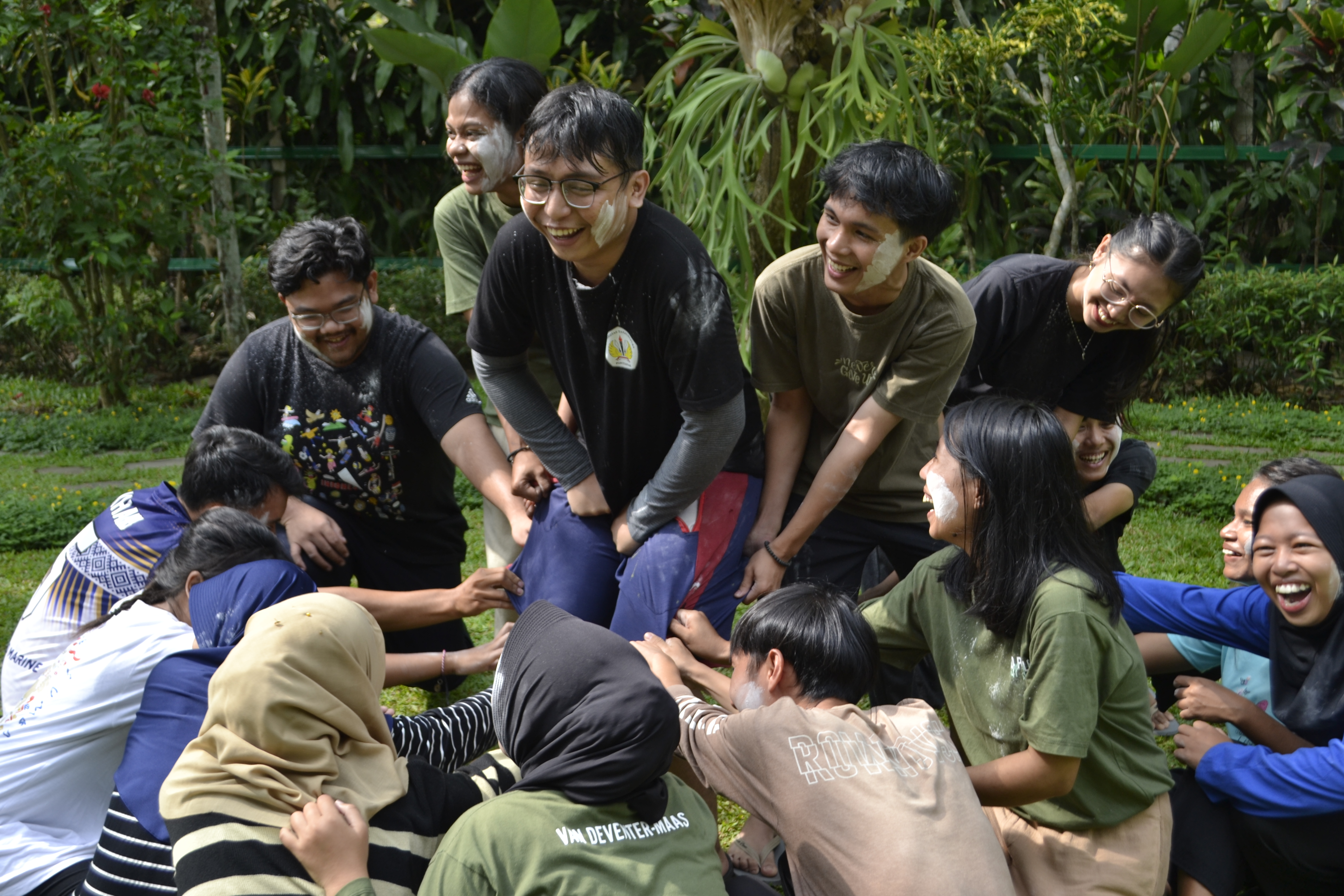
On the 4th day, Patrick continued with a refreshment by team building a game or role play about cooperative learning team, to identify the characters in a teamwork such as a good leader with responsibility, In the world of professional work, we must be able to listen. Dare to admit mistakes and take responsibility. Apart from that, in the work environment we must be able to be individuals who are present to provide solutions. After that, Dr. Zaki shared about the process of essay writing, focusing on breaking down the structure of paperwork. He introduced knowing through particular methods, “Knowing” is also about “being” and “continued becoming. Participants make paperwork drafting from a mind mapping, data organizing, desk research, to writing and editing the essay: Data Collection – Data Organizing – Mind Mapping – Desk Research (secondary in-depth data research) – Drafting (writing & editing / writing & editing). On the other hand, to make a narrative they have to build the story world by compiling story buildings and storytelling, for the main topic, they have to determine the focus of the writing. Meanwhile, written reports (research, travel, or other) can present the main topic and a number of derivative sub-topics. How writers emphasize the aim and main argument of our writing – aims to inform/explain, to entertain, invite debate, to campaign, or to tell stories about experiences.
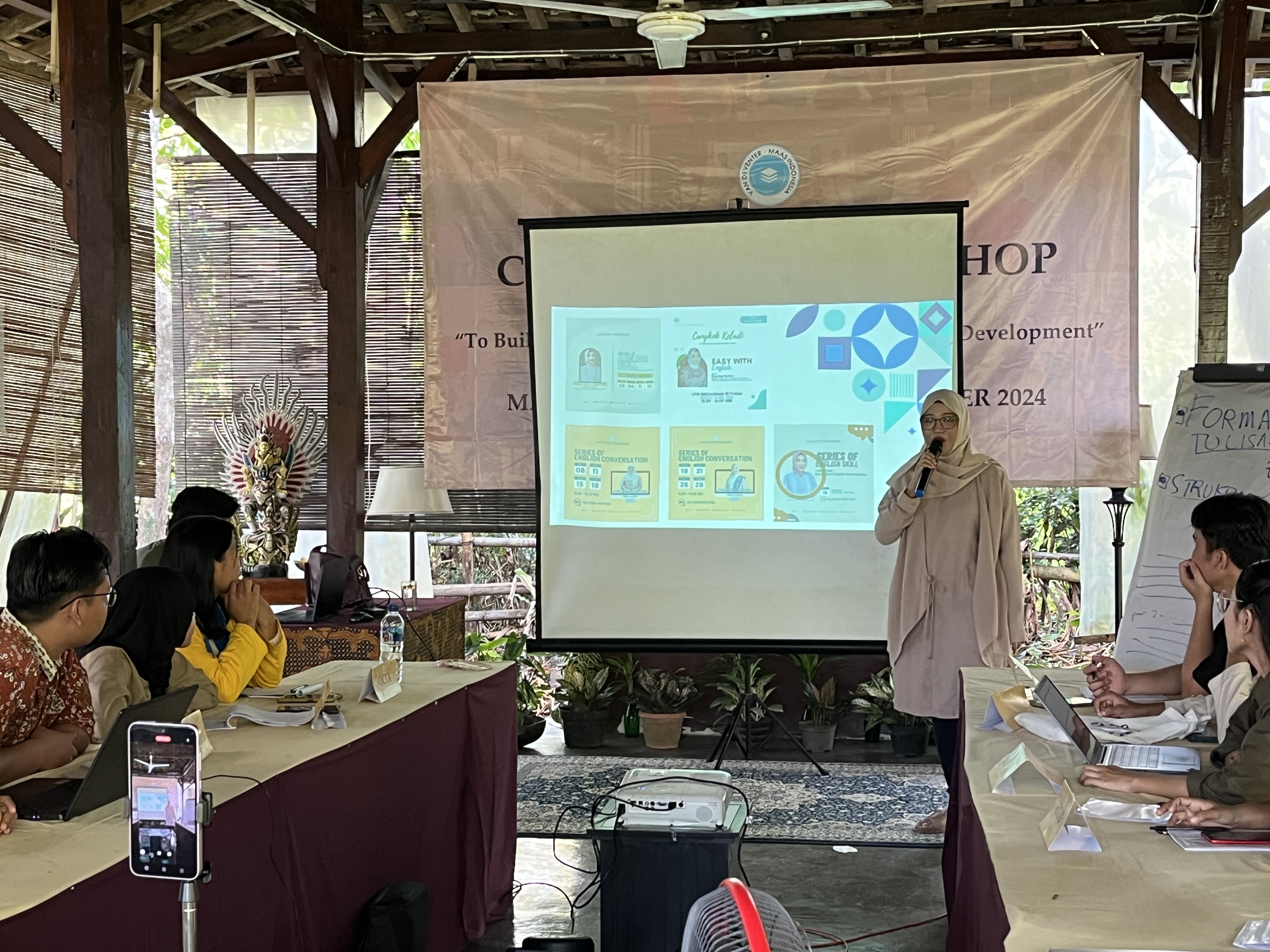
On the last day, Ersa Izmi (VDMS alumna) shared her education journey to get a scholarship of VDMS and current study, LPDP awardee master degree at UNY. She encouraged participants to dream high, embrace the challenges to get out of their comfort zone, so when they get a chance, they focus on making a goal happen. Participants write a letter “I Believe You Will Be..” about what kind of future they will be and to create a bonding between them. After that, each group presents the results of local exposure based on their respective topics. Group 1 (Wanurejo Village) highlighted: rich in tourism potential based on the existence of nine hamlets in this village, each of which offers different tourism. Group 2 (Catfish Cultivation) highlighted: there are three aspects, social, economy, and spiritual. An economic aspect, in the form of uncertain market cycles can have an impact on decline. On a social aspect, he showed a spirit of never giving up and chose entrepreneurship in hometown after previously working overseas and spiritual aspect, always involves God in every business experience with a five times prayer and routine set aside 10% of the income earned for zakat and donation. Group 3 (Rengginan) highlights their experience helping with store operations during a peak customer time. Sincerity and optimism have brought Mrs. Yatin to the point she is now, with achievements marked by a business name that is quite well known. Apart from that, there are lots of preparations provided ready-made rengginan snacks for visitors or buyers to try. Also, hot tea, coffee and water are available to quench visitors’ thirst. Group 4 (Mushrooms Cultivation) highlighted: The owner had an inspiration for cultivating mushrooms when markets in his area took mushrooms from other areas because mushroom cultivation was not available in his own area. He is persistent in learning mushroom cultivation techniques by himself. Currently, Jamur Borobudur produces product variations such as crispy oyster mushrooms, crispy ear mushrooms, mushroom chili sauce, mushroom meatballs, mushroom soup meatballs and many others. Product sales are carried out online via social media, and offline buyers from Borobudur tourists go directly to see the process of mushroom cultivation.
